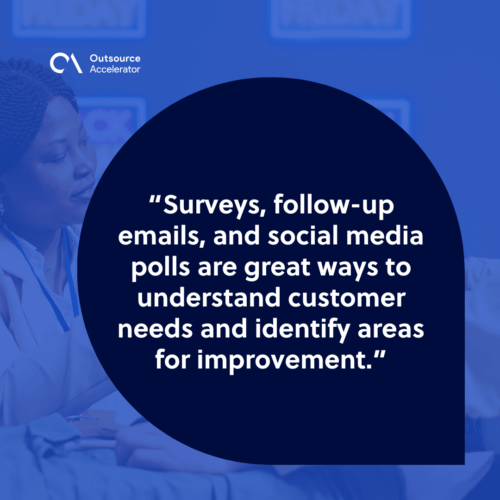5 digital customer service practices for superior support

Consumers nowadays expect instant, 24/7 support, and businesses must adapt to meet these demands or risk falling behind.
According to a Salesforce study, 76% of customers expect a seamless, consistent experience, no matter how they interact with a company, whether it’s live chat, social media, or email.
The advent of AI-powered tools like chatbots has further reshaped how businesses manage customer inquiries, enabling faster responses and reducing operational costs.
As businesses continue to shift to digital-first strategies, offering efficient and seamless customer service is no longer optional; it’s essential.
In this article, we’ll dive into what digital customer service is and explore the common challenges companies face when implementing it. We’ll also share best practices that can help firms improve support and enhance their overall customer experience.
4 challenges of implementing digital customer service
Implementing digital customer service comes with a host of challenges, especially as businesses strive to provide optimal, efficient support.

While the benefits are clear, working around the complexities of modern customer service technology is no easy feat.
Here are four main challenges businesses face:
1. Technology overload
With a wide range of digital tools available (e.g., live chat, chatbots, social media management, and software), businesses often struggle to integrate and manage multiple platforms.
This can lead to confusion, inconsistent support, and a fragmented customer experience if systems aren’t aligned properly.
2. Artificial intelligence (AI) implementation
Adopting AI-driven solutions like chatbots and virtual assistants can improve response times and reduce costs.
However, getting the AI to understand customer queries accurately and provide useful responses can be difficult. Poorly implemented AI can frustrate customers rather than helping them.
3. Maintaining a human touch
As automation takes over, it becomes harder to maintain personal, empathetic interactions. While digital tools can handle routine inquiries, customers still expect personalized service, especially for complex issues.
It’s crucial to find the ideal balance between automation and human interaction.
4. Data privacy and security concerns
Digital interactions come with heightened concerns about data privacy. Customers expect their personal information to be protected, and businesses must navigate complex regulations like GDPR to avoid breaches and build trust with their audience.
Each of these challenges requires careful consideration and a strategic approach to implement effective digital customer service.
5 digital customer service practices you must implement
Digital customer service is a powerful tool for improving customer experience. To get the most out of it, companies must adopt best practices that augment both efficiency and personalization.
Below, we have five essential strategies for delivering outstanding digital customer support:
1. Integrate multiple channels
There are several ways that customers interact with businesses:
- Social media
- Live chat
- Phone calls
Businesses must integrate these channels to provide a seamless experience and unified customer support. This allows agents to access customer history and offer consistent service across platforms, helping to avoid repetition and frustration.
2. Optimize for mobile
Mobile devices are now the primary means of accessing digital services. For companies, optimizing customer service for mobile has become a must.
Ensure your website, chat interfaces, and self-service tools are mobile-friendly. A responsive, easy-to-use mobile experience can significantly improve customer satisfaction, particularly for customers who need support on the go.
3. Use AI wisely
Artificial intelligence tools like chatbots can efficiently handle routine queries, but it’s important to use them where they’re most effective. For example, AI can quickly answer common questions or direct customers to the appropriate resources.
However, AI should not be relied on for complex or nuanced inquiries, as this can lead to frustration and dissatisfaction.
4. Maintain human support for complex issues
AI and automation can speed up basic inquiries. However, human agents are still essential for addressing more complex or sensitive issues.
Make it easy for customers to escalate their concerns to a human when necessary. Personalized, empathetic support is often crucial for resolving complex issues.
5. Feedback loops
Regularly collect feedback from customers to gauge the effectiveness of your digital customer service.
Surveys, follow-up emails, and social media polls are great ways to understand customer needs and identify areas for improvement. Acting on feedback helps to refine your processes and create better experiences over time.

Optimize digital customer service with Booth & Partners
Booth & Partners specializes in providing expert talent to help businesses enhance their digital customer service operations.
Partnering with Booth & Partners gives you access to skilled professionals who can optimize your digital customer experience, boosting satisfaction and efficiency.
Get in touch with Booth & Partners today to learn more about how it can elevate your digital customer service!







 Independent
Independent




